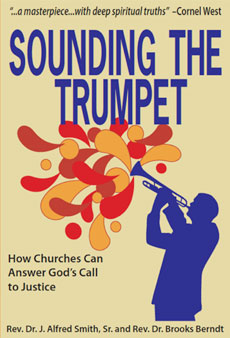"I believe the role of faith communities in the arena of public policy is to provide a moral squint that gives priority to core values such as justice, equity, and sustainability, a moral squint that gives priority to care for the health of humans and care for the health of all creation. In Proverbs, it says, 'Where there is no vision, the people perish.' In the matter of energy, where there is no vision, the people literally perish, because we know that coal pollution is tied to four of the top five causes of death in our country. Where there is no vision, infants and pregnant mothers suffer from mercury poisoning. Where there is no vision, the ozone layer perishes, snowcaps melt, and sea levels rise. Where there is no vision, the beauty of the wilderness perishes from view as we get more and more smog and haze. Where there is no vision, jobs get lost and those who reaped the profits quickly depart.
"It is in the spirit of Proverbs that clergy are speaking up more and more. A recent op-ed in The Columbian newspaper of Vancouver by Bishop Greg Rickel and the Rev. Hunt Priest demonstrates this. The op-ed spoke in favor of this bill that would transition us away from coal energy by 2015. In closing, if the role of faith communities is both to make us aware of the danger of having no vision and to push for a vision rooted in our values, then my hope and my prayer is that your role as legislators is to enact that vision, because with a vision, the people will flourish and all of creation will flourish."
